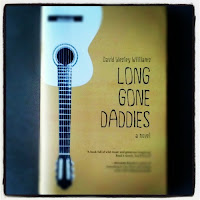 | |
| Nose by James Conaway |
I've just finished reading Conaway's latest novel, NOSE (Thomas Dunne Books), and it is effortless. The sense I had while reading it was that I was sitting down with the author in a comfortable bar, sipping wine, and listening to a story being told. The story in this case is of a valley in Northern California where wine, and the subsequent effluvia, is the main cash crop with players going back generations or, in some cases, only days. Les Breeden tumbles into town on a Pacific breeze to work at the area's small newspaper, only to be laid off before that breeze has ceased to blow. He meets some regulars in a bar called the Glass Act and becomes entangled with the wife of Clyde Craven-Jones, the preeminent wine critic. Craven-Jones – CJ, as he's known – has had a mystery bottle of Cabernet left on his doorstep that garners his highest rating. But who left it there? No one comes forward and the hunt for the mystery vintner leads us through a valley peopled by farmers, high society, drunks, scientists, capitalists and immigrants; oenophiles all, their veins flowing with the thick, fruity stuff.
Conaway is knowledgeable in wines and how they come to be, there's no disputing that. His nonfiction bestsellers NAPA and THE FAR SIDE OF EDEN can be consulted if any question to pedigree arises. The trick here is that he doesn't hold that knowledge over us. The danger in a novel such as this is that talk of climate and soil, microbes and fermentation, will bog us down and make the vintage undrinkable. Not the case. It's all there, yet is handled in such a way, with humor and a certain amount of industry self-deprecation, that we don't even realize we're learning something new.
I've read many of Conaway's books and enjoyed them all, but there is a special place on my shelf for MEMPHIS AFTERNOONS, the vine of that memoir being grafted, as it is, with Conaways and Alleys. There is much to love in this new pour as well. There is mystery and some tragedy. There is great dialogue and wit and hope. These are the ingredients necessary to blend a book that is enjoyable, fast-paced, fun and effortless.
Read more at NOSE and at Thomas Dunne.







